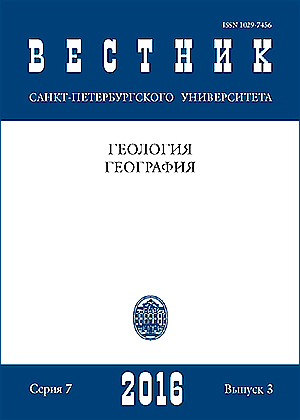GPS-collar tracking and GEO-spatial modelling to analyze the eff ects of hydro-power development on reindeer herding in Northen Finland
DOI:
https://doi.org/10.21638/11701/spbu07.2016.307Abstract
Th is paper deals with the possible eff ects of a planned water reservoir in the Pudasjärvi — Kollaja area (northern Finland) on local reindeer husbandry. Reindeer husbandry is a culturally and locally also economic important livelihood, which can utilize the limited biological resources of the Boreal forests and mires. Th e study used GPS-collar tracking and geospatial modelling (kernel density) together with statistical methods (Principal Component PCA niche analysis) to analyze the present situation and evaluate expected consequences of the implementation of the planned reservoir. Th e results show that the tracked reindeer in the study year (2015) did use the surroundings of the planned reservoir during the calving period (May — June), but not the core area. Th e planned channels leading to and from the reservoir however, will fragment the pasture areas and cut present migration routes. GPS-Collars and the open-source R-environment provide ample resources for the geo-statistical analysis of animal movement.
Keywords:
GPS collar tracking, Kollaja, hydro-power development, reindeer herding, geospatial modelling, habitat use analysis
Downloads
Downloads
Published
How to Cite
Issue
Section
License
Articles of "Vestnik of Saint Petersburg University. Earth Sciences" are open access distributed under the terms of the License Agreement with Saint Petersburg State University, which permits to the authors unrestricted distribution and self-archiving free of charge.






